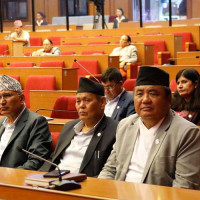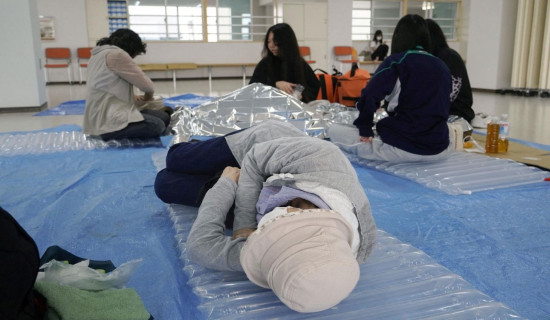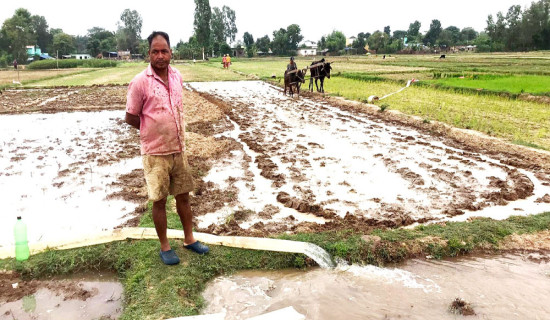- Thursday, 31 July 2025
Is Colonialism Dead Or Alive?
Is colonialism truly a relic of the past? This question continues to spark debates. While political colonialism officially ended with the United Nations closing its Trusteeship Council in 1994, which oversaw the decolonisation process, its legacy endures in different forms and manifestations in different parts of the world, mainly in the Global South, which was the victim of colonial domination.
Colonialism prospered in regions rich in resources and cultural diversity, such as the Middle East and North Africa (MENA), Southeast and South Asia. The region had powerful empires like the Egyptian (3500 BCE- 1069 BCE), Babylonian (1894 BCE – 539 BCE), Roman (27 BCE – 1453 CE), Ottoman (1299 – 1922) empires, which expanded through a blend of military prowess, economic strength, cultural exchange, and religious influence. Their legacies continue to shape modern governance, geopolitics, and resource management even today.
Colonial powers
Southeast Asia saw varied colonial powers. The Dutch held Indonesia, the French controlled Indochina (Vietnam, Laos, Cambodia), and the British ruled over Malaysia, Singapore, and parts of Borneo. Thailand (Siam), however, managed to remain independent. The United States also entered the imperial fray and took control of the Philippines after the Spanish-American War in 1898.
While China was never formally colonised, it endured foreign domination through a series of unequal treaties after the Opium Wars, leading to the establishment of “spheres of influence." China calls it the ‘century of humiliation.’ Japan avoided colonisation by rapidly modernising and emerging as an imperial power, seizing Taiwan, Korea, and parts of China by the early 20th century. They all imposed centralised rule over diverse populations, transforming political, cultural, economic and military systems. Colonialism destroyed traditional values and disrupted social structures. They introduced infrastructures like railways and ports that paved the way for economic development.
Britain and France ruled many Asian countries. Starting in the 16th century, Western powers — primarily Portugal, Spain, the Netherlands, Britain, and France — established trading posts, which were converted into colonies. By the 19th century, these empires expanded, exploited Asia’s resources, labour and strategic locations, leaving lasting impacts on the region. British colonialism in India was transformative. The East India Company grew from a trader to a colonial ruler, leading to the British Raj in 1858. India became the "jewel in the crown" of the British Empire, with British influence shaping everything from the economy to education and law.
Burma (now Myanmar) and Ceylon (now Sri Lanka) were also colonised. Afghanistan became a buffer state between the British and Russian empires. Nepal, however, was able to stay free from the claws of colonialism even during its heyday. In the early 20th century, anti-colonial sentiments grew strong, contributing to independence movements across the continent. By the mid-20th century, the decolonisation wave swept across Asia. World War II became a tipping point for decolonisation. The tide of public opinion against colonial rulers stripped them of their colonial possessions.
However, the root causes of ongoing territorial disputes, economic disparities, and political boundaries remain as offshoots of colonial histories, which continue to influence interstate relations, geopolitics, economic development, and cultural identity even today. After the WW II, the United Nations was established on the principle of the sovereign equality of all nations. Article 1 (2) allows the principle of self-determination for all states and keeps matters of “domestic jurisdictions” from the interference of other states. As the decolonisation threatened their national interests, their power dwindled to the status of small powers. They used their past influence to structure the powerful organ of the UN Security Council in such a way as to protect their interests.
In recent decades, there has been a proliferation of tiny postcolonial nations joining the United Nations as new member-states. This has created a hunting ground for wealthy nations to influence these smallest UN member-states, each of which has one vote in the UN General Assembly. The permanent members of the Security Council, particularly the US, China and Russia, dominate the global politics. Each has its own set of client nations and a circle of loyal supporters whom they influence heavily.
Colonial powers looted the colonised world, creating a structural foundation for global poverty and inequality. The Oxfam report 'Takers not Makers: The Unjust Poverty and Unequal Wealth of Colonial Inheritance 2025' brings out disturbing findings that $30 million an hour is being paid by the Global South to the richest 1 per cent in the Global North. Globally, billionaires’ wealth has risen three times faster in 2024 than in 2013. Globalisation created both winners and losers. It created inequality, a class of rich and poor, haves and have-nots, and widened the gaps between them.
This gap creates a feeling of discrimination with a substantial segment of the population inclining toaards ethnic nationalism. Growing inequality and weak economic growth fuel political discontent and disruption, enabling external powers to exploit the situation. Where inequality is being perpetuated, internal colonialism emerges as a source of instability, with roots tracing a long history of colonial domination. These roots manifest as fault lines within and between nations, creating fertile ground for conflict. Under such circumstances, foreign aid directed to poor countries is structured to bring substantive gains to donors themselves.
Without appropriate national mechanisms to use it, foreign aid, as B.P. Koirala said, only creates a “new class of people whose affluence is unrelated to the general economic condition of the nation as a whole.” Nations need to incorporate indigenous values into their national life and strengthen mechanisms for utilising goodwill and aid, in the absence of which the burden of foreign debt creates donors’ influence and domination, giving rise to neo-colonialism through debt dependency and exclusive contracts.
Decolonisation movement
Former Ghanaian president Kwame Nkrumah, who led the decolonisation movement in Africa, said, “Africans saw off their colonial masters, put leadership in the hands of their own people, and set about building their economies for their national benefit, but found that most of the problems of colonialism still plagued them. Decolonisation was followed not by autonomy but by an even deeper dependence on the global economy on the terms of which they had no control.”
He warned, “The rulers of neo-colonial states derive their authority to govern, not from the will of the people, but from the support which they obtain from their neo-colonial masters.” He argued that the less-developed world would not progress through the goodwill of developed powers, but by resisting forces that benefit from its underdevelopment. Colonialism is dead, but it appears alive in different forms and manifestations.
(Bhattarai, Ph. D., is a faculty member of the Institute of Crisis Management Studies (ICMS), Tribhuvan University. dineshbhattarai@tuicms.edu.np)



-original-thumb.jpg)



-square-thumb.jpg)









